a pulmonary and critical care physician at NewYork-Presbyterian Brooklyn Methodist Hospital describes the fascinating synergy between these two realms of medicine
By megan schade • photos by amessé photography
Doctor Russi—He’s so good,” said Luz Luna, unit secretary on the Pulmonary Step-Down Unit at New York- Presbyterian Brooklyn Methodist Hospital “He’s so giving with the patients, the families, the staff. We all love him.” Luna has worked on the unit (for patients who are discharged from the Critical Care Unit yet still need specialized care) for 25 years and has seen a lot of doctors.
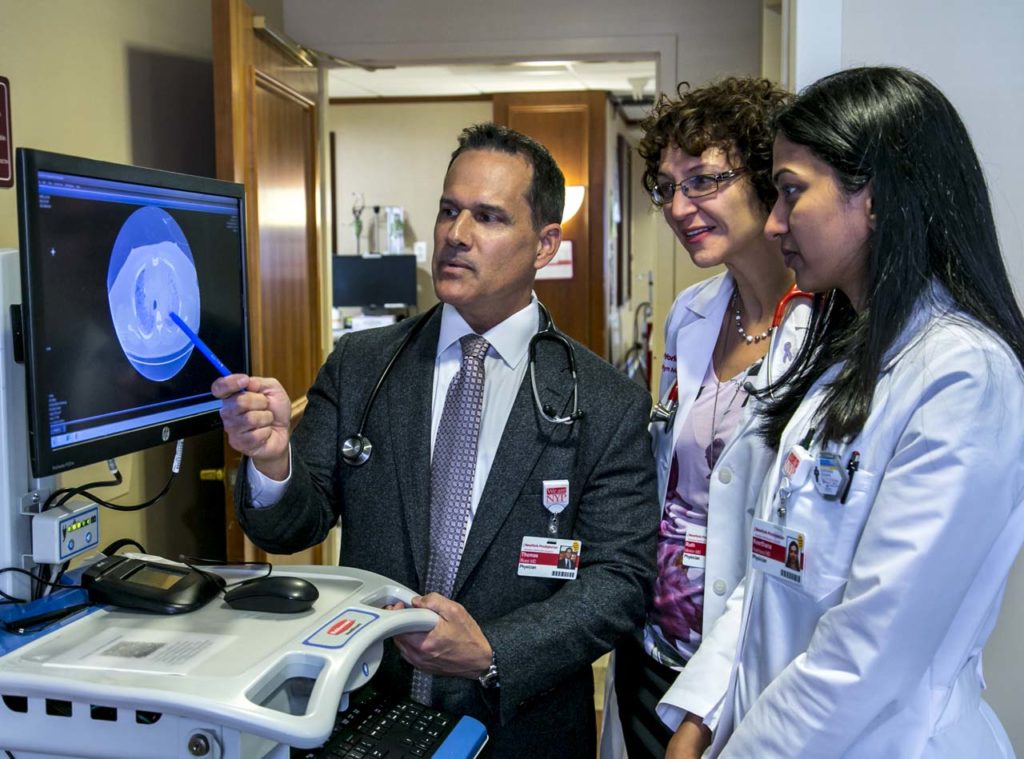
Thomas Russi, M.D., pulmonary and critical care physician at the Hospital, has been “on the unit” for more than 20 years himself, and believes that NYP Brooklyn Methodist is part of his identity. “I continue to be energized by my work here, not only with my patients but also with my colleagues,” he said. “I am proud to work at a hospital that has such an engaged clinical staff. Healing comes with collaboration.”
After attending Temple University Medical School and serving as a resident physician at Hahnemann University Hospital in Philadelphia, Dr. Russi completed a fellowship in pulmonary and critical care medicine at Weill Cornell Medical Center.
“During my fellowship, I worked with Gerard Lombardo, M.D., a pulmonologist and sleep medicine specialist at NYP Brooklyn Methodist’s Center for Sleep Disorders,” recalled Russi. “We just clicked, and when I was asked to join the Hospital, it was a no-brainer; I was so impressed with what I saw there and the physicians whom I’d met—I knew it would be an exciting place for me to grow.”
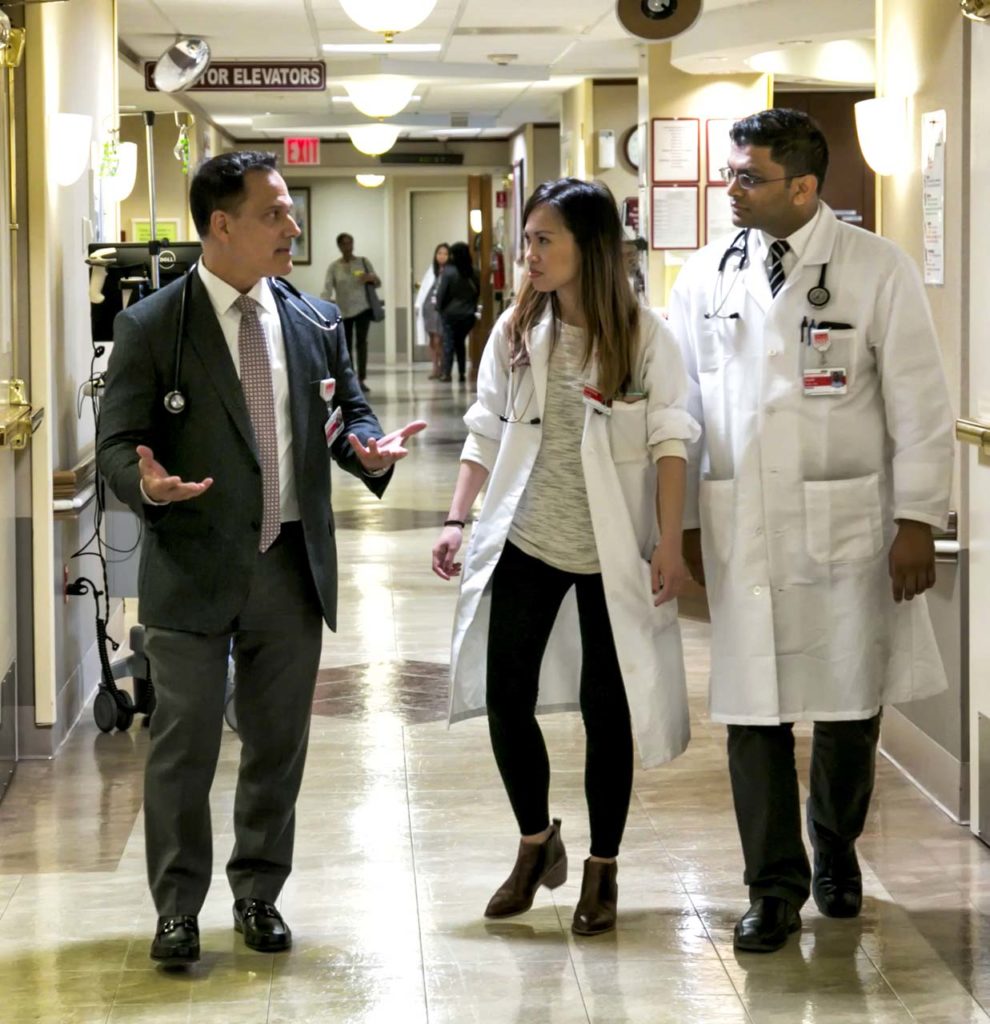
The specialties of pulmonology and critical care medicine are often studied and practiced together. Patients on the Critical Care Unit are treated for life-threatening conditions and multi organ-system failure. The lungs’ ability to function well enough to supply the body and blood with sufficient oxygen is paramount to healing. However, in critical care cases, the lungs’ abilities are often compromised and require an external mechanical ventilator to help produce and distribute enough oxygen. Specialists in pulmonology and critical care medicine are not only experts in the lungs and lung diseases, but are also skilled in monitoring and adjusting the mechanical ventilators and being part of the interdisciplinary clinical network that comes together to treat a critically ill patient.
When asked what it was about pulmonology and critical care medicine that made him choose that specialty, Dr. Russi responded with a common reply: a passionate mentor.
“During my critical care rotation of residency training, I worked with a physician who personified the kind of doctor I wanted to be: his excitement about his work was electric,” said Dr. Russi. “The immediacy of critical care medicine requires multidimensional and multidisciplinary thinking. There are so many of the body’s systems in crisis that we often need to collaborate with surgeons, oncologists, rheumatologists or neurologists to identify problems and develop solutions.”
Critical care cases are just that: critical. Not just for the patient but for the patient’s family and loved ones. “In many cases,” said Dr. Russi, “it is up to me to be the main connection between the person I am caring for and the people who love him or her. This field allows me to experience the humanistic side of medicine, to work towards healing the patient, while also ensuring that the loved ones are receiving kind and respectful care.”
When not treating patients in the Hospital, Dr. Russi works with outpatients who are dealing with any number of pulmonary issues, from pneumonia to asthma to chronic obstructive pulmonary disease.
“I perform a number of diagnostic procedures, depending on the needs of my patients,” he explained. “The principle ones involve pulmonary function testing, which I can do right in my office.” Pulmonary function tests assess the lungs’ ability to function, such as how efficiently they inhale and exhale, and how well they transfer oxygen into the blood.
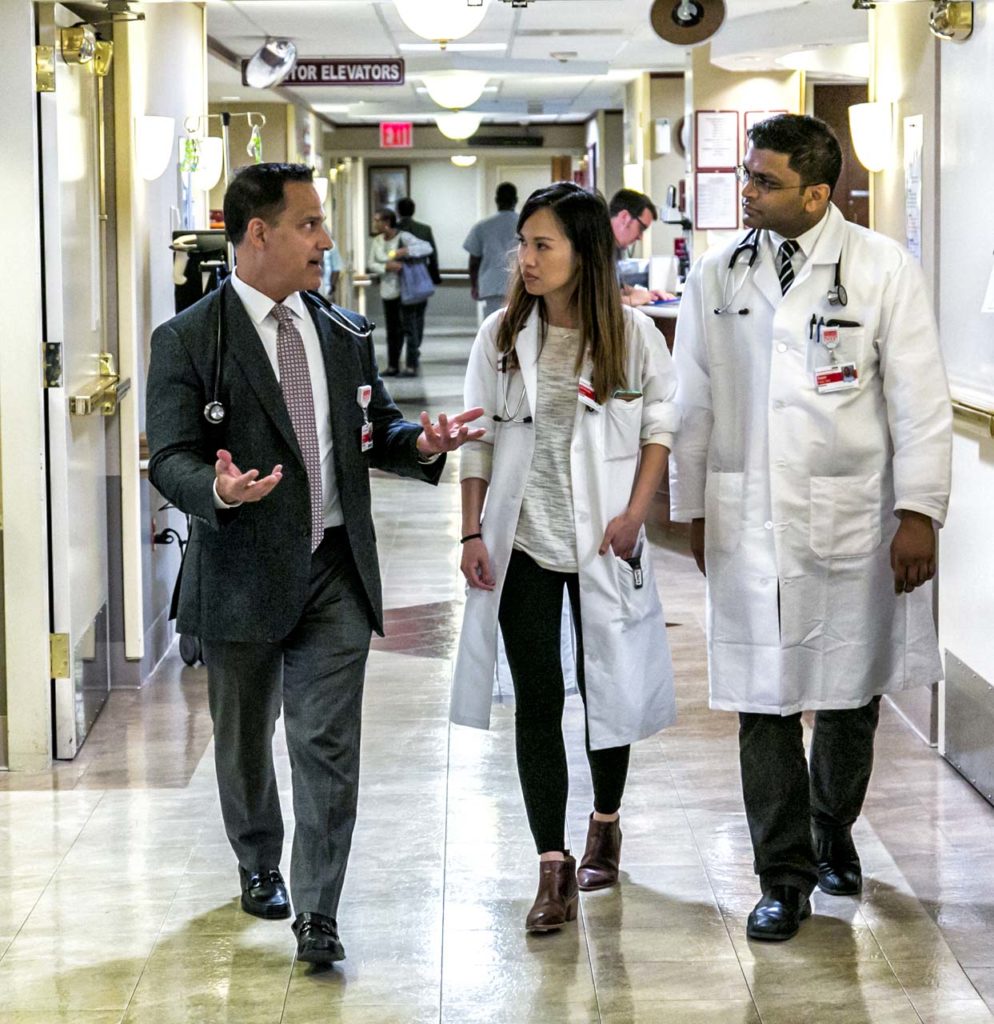
Procedures that Dr. Russi performs at the Hospital on an outpatient basis include bronchoscopy, during which a thin viewing instrument is threaded through the throat and airways to obtain a biopsy; and thoracentesis, during which excess fluid that has built up in the pleura (which separate the lungs from the chest wall) is drained.
“NYP Brooklyn Methodist has an unusually comprehensive pulmonary service,” Dr. Russi said. “I am fortunate to be able to refer patients to the many talented subspecialists here on staff. For instance, our Interventional Pulmonology Program, run by Keerthana Keshava, M.D., provides minimally invasive diagnosis and treatment options for patients with challenging airway or pleural diseases. The Hospital is also one of the few in the tri-state area to have a Pulmonary Hypertension Center, which provides the integrated care needed for this serious condition. It is directed by Ruth Minkin, M.D. ”
The Center for Sleep Disorders, which served as Dr. Russi’s introduc-tion to the Hospital all those years ago, has also continued to develop, offering state-of-the-art sleep study and treatment technologies in a newly renovated facility.
As if having a busy practice isn’t enough, Dr. Russi is also the physician advisor to the Hospital’s Clinical Documentation Improvement (CDI) program.
“In this day and age, it isn’t sufficient for a health care provider to just ‘do,’” he said. “He or she needs to document the diagnosis and treatment provided. As hospitals become more and more tech savvy, that documentation takes place in electronic heath records. Documentation not only provides the record of a patient’s hospital experience, but also the data needed to assess and formulate best practices and evaluate results and quality of patient care.”
Dr. Russi works with Hospital physicians to ensure consistency in patient documentation, and also coordinates with the information technology staff to address questions and concerns from the documenting physicians. “I always say that a patient’s chart should read like a really good story,” he said, “with lots of details and rich descriptions. It can be tricky for a busy doctor to consistently document, but I tell the doctor, ‘If it isn’t documented, it didn’t happen,’ and I work with the doctor to get the data that is needed in the most efficient way possible.”
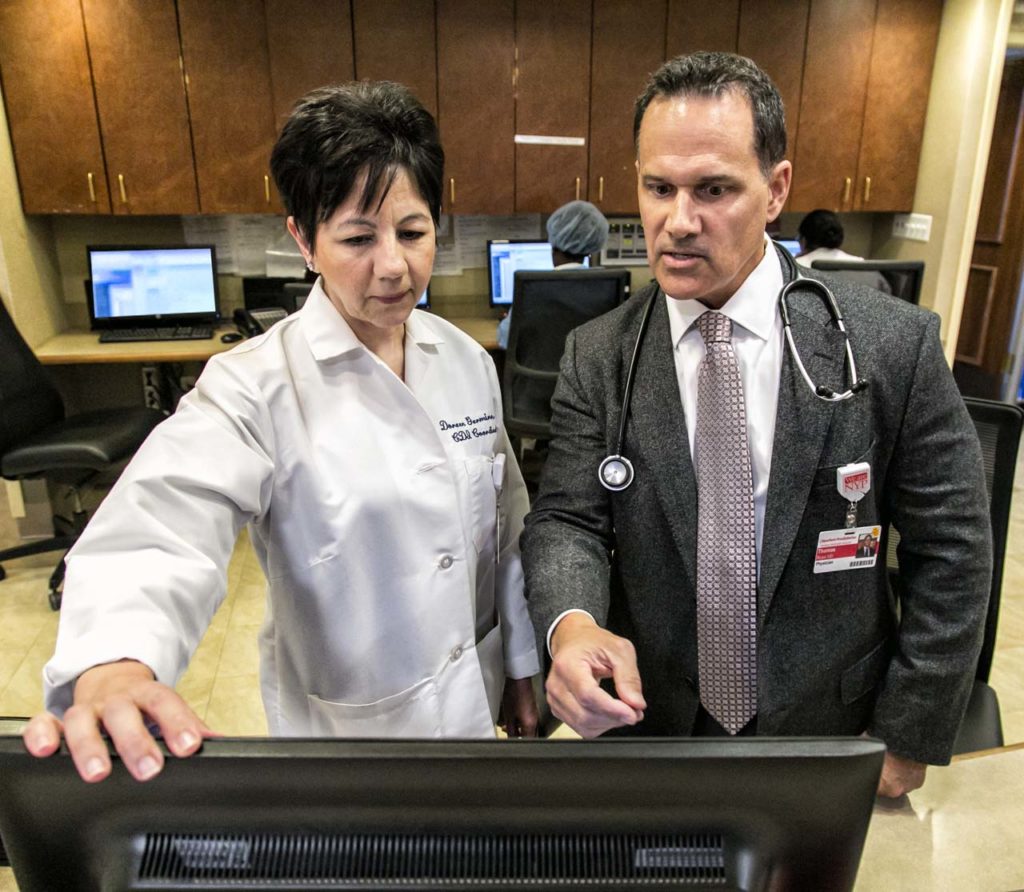
“He is so generous with his time; his patients know that, and his colleagues do too,” says Jeremy Weingarten, M.D., chief of the Division of Pulmonary and Critical Care Medicine and director of the Center for Sleep Disorders. “Dr. Russi is committed to working with young doctors specializing in pulmonary and critical care medicine, and also to guiding seasoned physicians in maximizing clinical documentation—an important component of modern day healthcare.”
Dr. Russi’s enthusiasm is not just reserved for work, but for all areas of his life. While most people with his schedule would choose a nap to fill a bit of free time, “I was introduced to weight training in my first year of medical school and have kept up with it ever since. Although I may not be able to bench press as much as I did back then, I still enjoy those three or four hours a week of escape, while challenging myself physically. Also, I love having Brooklyn and Manhattan right at my doorstep to explore and experience, and really make it a point to try new restaurants with my fellow ‘foodies.’ Sometimes a night out with my friends or family is just what the doctor ordered.”
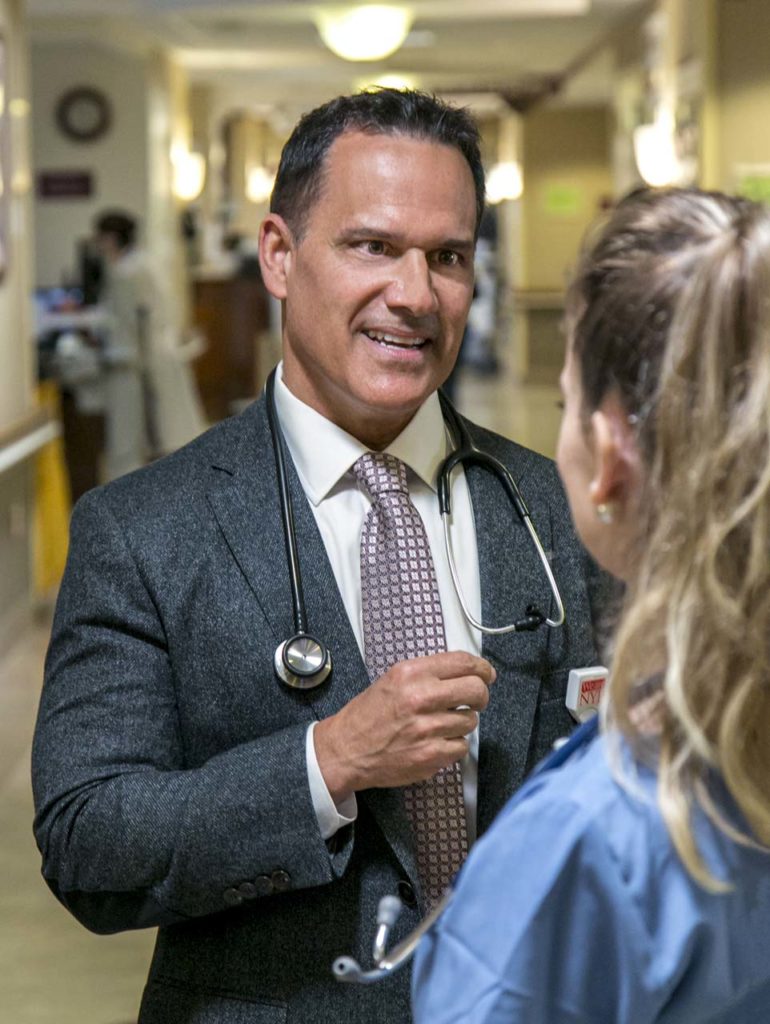
NewYork-Presbyterian Brooklyn Methodist Hospital
506 6th Street / 718.780.3000 / www.nyp.org/brooklyn
